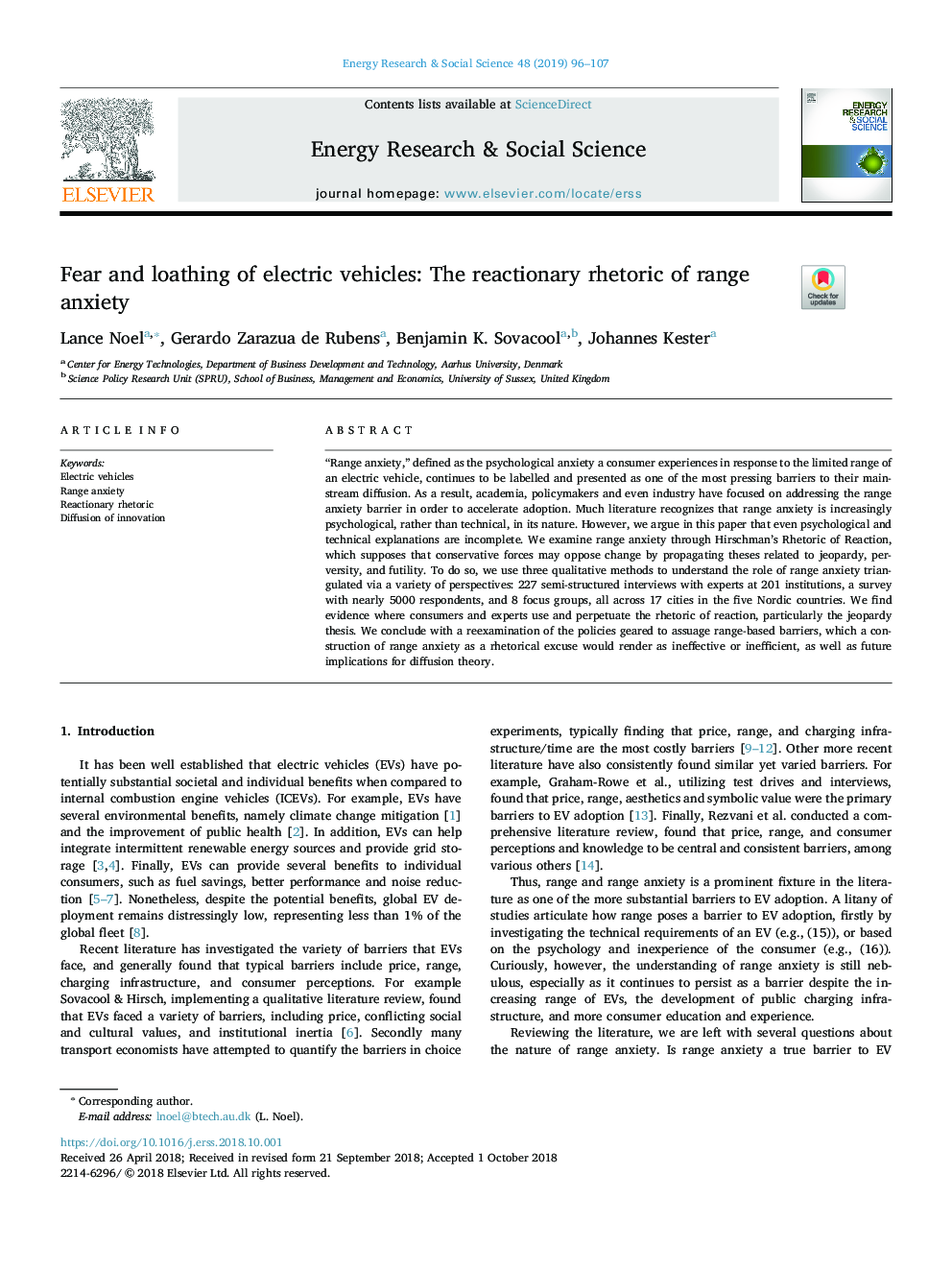| Article ID | Journal | Published Year | Pages | File Type |
|---|---|---|---|---|
| 11012760 | Energy Research & Social Science | 2019 | 12 Pages |
Abstract
“Range anxiety,” defined as the psychological anxiety a consumer experiences in response to the limited range of an electric vehicle, continues to be labelled and presented as one of the most pressing barriers to their mainstream diffusion. As a result, academia, policymakers and even industry have focused on addressing the range anxiety barrier in order to accelerate adoption. Much literature recognizes that range anxiety is increasingly psychological, rather than technical, in its nature. However, we argue in this paper that even psychological and technical explanations are incomplete. We examine range anxiety through Hirschman's Rhetoric of Reaction, which supposes that conservative forces may oppose change by propagating theses related to jeopardy, perversity, and futility. To do so, we use three qualitative methods to understand the role of range anxiety triangulated via a variety of perspectives: 227 semi-structured interviews with experts at 201 institutions, a survey with nearly 5000 respondents, and 8 focus groups, all across 17 cities in the five Nordic countries. We find evidence where consumers and experts use and perpetuate the rhetoric of reaction, particularly the jeopardy thesis. We conclude with a reexamination of the policies geared to assuage range-based barriers, which a construction of range anxiety as a rhetorical excuse would render as ineffective or inefficient, as well as future implications for diffusion theory.
Related Topics
Physical Sciences and Engineering
Energy
Energy (General)
Authors
Lance Noel, Gerardo Zarazua de Rubens, Benjamin K. Sovacool, Johannes Kester,
